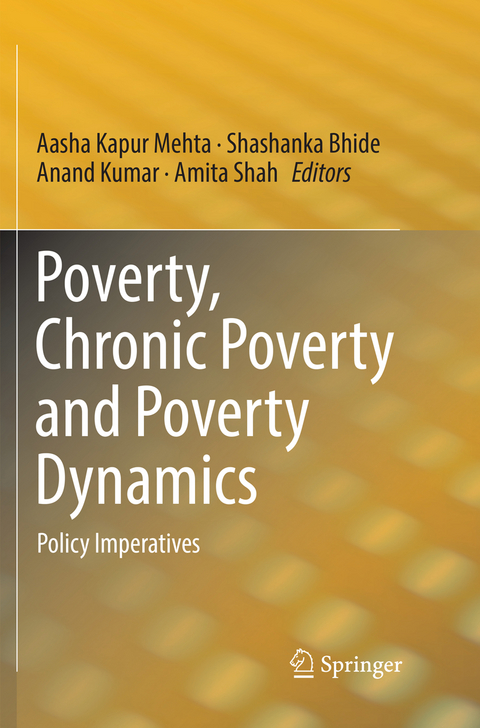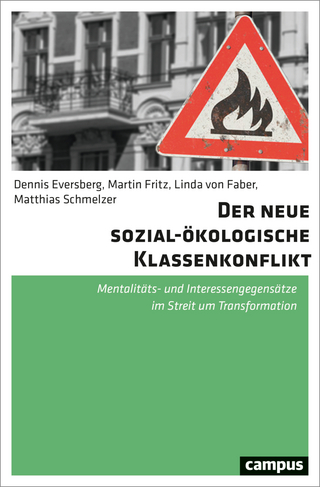
Poverty, Chronic Poverty and Poverty Dynamics
Springer Verlag, Singapore
978-981-13-4477-0 (ISBN)
India’s report card on poverty remains dismal even though there is recognition of the importance of reducing or eliminating or endingit at both national and global levels. Despite rapid economic growth and improvement on a range of development indicators, an unacceptably high proportion of India’s population continues to suffer poverty in multiple dimensions. SDG 1 or “ending poverty in all its forms everywhere” cannot be achieved unless policies and poverty alleviation programmes understand and address chronic poverty and its dynamics. This requires that we estimate and understand the extent of poverty, the factors that lead to people getting stuck in it and the ways this can be addressed. It also requires understanding the dynamic nature of poverty or the fact that many of those who are poor are able to move out of poverty as well as the fact that many others who are not poor become impoverished. These are the issues that are comprehensively examined and addressed in this book.
In addition to students, teachers and researchers in the areas of development, economic growth, equity and welfare, the book is also of great interest to policy makers, planners and non‐government agencies who are concerned with understanding and addressing poverty-related issues in the developing countries.
Aasha_Kapur Mehta is Professor of Economics at the Indian Institute of Public Administration. She studied at Delhi School of Economics, Jawaharlal Nehru University (JNU), New Delhi and Iowa State University, USA. She is a McNamara fellow and a Fulbright Scholar. She was a Member of Working Groups for the 11th and 12th Plans; chaired two subgroups; served as a Member of the core group of the Cabinet Secretariat Ad-hoc Task Force for reviewing RFDs of Ministries/Departments of Government of India and State Governments; and Member of Committees constituted by Ministries such as MoRD, MoPR, MoSPI and MWCD. She was invited as an expert to assist Niti Aayog in formulating the Rural Economy chapter for the Vision, Strategy and Action Plan document. She has led the work of the Chronic Poverty Research Centre in India for more than a decade. Her publications are on poverty, human and gender development indicators, multi-dimensional deprivation, gender issues, gender budgeting and data gaps. Shashanka_Bhide is presently Director of Madras Institute of Development Studies (MIDS), Chennai. He was a senior researcher at the National Council of Applied Economic Research, New Delhi before joining MIDS. He received his PhD from Iowa State University, USA and Masters from Indian Agricultural Research Institute, New Delhi. He has worked in the areas of macroeconomic modelling and forecasting, agricultural economics, infrastructure and issues relating to chronic poverty in rural India. Anand Kumar is a Fellow at the Indian Institute of Advanced Studies, Shimla since 2016. Prior to this he worked as a Professor of Sociology at the Jawaharlal Nehru University, New Delhi, from 1998. He received an MA in Sociology at the Banaras Hindu University (BHU), Varanasi, 1972; an MPhil in Sociology at the Jawaharlal Nehru University (JNU), New Delhi, 1975; and a PhD in Sociology at the University of Chicago in 1986. He was a Lecturer in Sociology at BHU from 1979 to 1989, an Associate Professor of Sociology at JNU from 1990 to 1998. He also taught as India Chair in Germany (Albert Ludwig University, Freiburg) and GSP Scholar at Humboldt University (Berlin, Germany). He was a Fulbright Visiting Scholar at Tufts University from January to May 2013, International Faculty at Innsbruck University (Austria), GSP faculty at FLACSO (Buenos Aires, Argentina), Visiting Professor at NEHU, Shillong, Kashmir University, Srinagar and Central University of Tripura. He was President of the Indian Sociological Society (2013 - 2015). Amita Shah is an economist, with wide-ranging experience of conducting research on various aspects of development studies. She is presently working with Centre for Development Alternatives (CFDA), Ahmedabad, as a Honorary. Fellow. Prior to this she was a Professor and Director of Gujarat Institute of Development Research, Ahmedabad. She has worked closely with a number of bilateral and multilateral organisations besides a number of government agencies and ministries at the center and state level, and participated in an informed process of policy formulation. She has extensively undertaken collaborative research both within and outside India. She has published about 100 research papers in professional journals and has co-authored/ edited four books. She has been invited as a Visiting Fellow/Scholar to academic institutions in United Kingdom, China, France, Netherlands, and Canada. She was President of Indian Society for Ecological Economics (2013-15).
Introduction.- A review of the Dynamics of poverty.- Hunger, Undernutrition and Food Security in India.- Addressing Poverty and Conflict: A Gandhian initiative.- Changing Scenario of Migration and Poverty in India: Reflections and Issues.- Ill health and Entry into Poverty: What Has Worked, What Has Not and Why.- Education and Poverty.- Eliminating Poverty: Applying the Drivers, Maintainers, Interrupters Framework.
| Erscheinungsdatum | 17.01.2019 |
|---|---|
| Zusatzinfo | 7 Illustrations, color; 3 Illustrations, black and white; XXIX, 254 p. 10 illus., 7 illus. in color. |
| Verlagsort | Singapore |
| Sprache | englisch |
| Maße | 155 x 235 mm |
| Themenwelt | Sozialwissenschaften ► Soziologie ► Spezielle Soziologien |
| Wirtschaft ► Allgemeines / Lexika | |
| Wirtschaft ► Volkswirtschaftslehre | |
| ISBN-10 | 981-13-4477-9 / 9811344779 |
| ISBN-13 | 978-981-13-4477-0 / 9789811344770 |
| Zustand | Neuware |
| Informationen gemäß Produktsicherheitsverordnung (GPSR) | |
| Haben Sie eine Frage zum Produkt? |
aus dem Bereich


